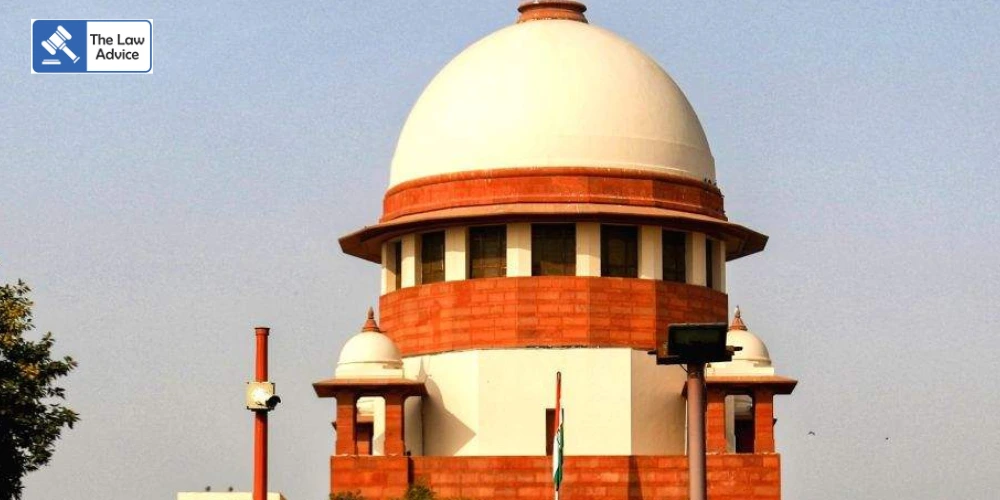
The Supreme Court has quashed multiple FIRs lodged in Uttar Pradesh against Dr. Rajendra Bihari Lal, Vice-Chancellor of Sam Higginbottom University of Agriculture, Technology and Sciences (SHUATS), and several others, holding that the criminal proceedings were based on “wholly incredulous material” and constituted an abuse of the process of law.
A Bench of Justice JB Pardiwala and Justice Manoj Misra delivered the verdict while hearing a batch of petitions challenging several FIRs registered across UP under the U.P. Prohibition of Unlawful Conversion of Religion Act, 2021 and the Indian Penal Code.
The Court observed that one FIR was legally barred since it was not filed by a victim — a mandatory requirement under Section 4 of the UP Act (as it stood before its 2024 amendment). The remaining FIRs were found to be mere repetitions of the same allegations. The Bench noted that the witness statements appeared to be “cyclostyled,” with identical language and even repeated typographical errors. None of the statements revealed any instance of forced conversion — only references to religious gatherings and Bible preaching.
“The UP Conversion Act or the IPC do not make religious gatherings or charitable work criminal offences,” the Court remarked, emphasizing that the material relied upon by the police lacked credibility and fell “hopelessly short of the standard necessary for permitting criminal prosecution to proceed.”
The first FIR (No. 224/2022) was registered at Kotwali Police Station, Fatehpur, alleging mass conversion of 90 persons on Maundy Thursday at the Evangelical Church of India. It was lodged by Himanshu Dixit, Vice President of the Vishwa Hindu Parishad, who was admittedly not a victim — rendering the FIR invalid.
Another FIR (No. 47/2023) alleged that the accused had lured the complainant into Christianity with offers of money, employment, and marriage. Yet, the statements and evidence only reflected a verse cited during a Bible gathering — “Psalm 2:8: Ask me, and I will make the nations your inheritance, the ends of the earth your possession.” The Court observed, “We are at a loss to understand how such a gathering could violate the law when there was no direct attempt to induce conversion.”
Subsequent FIRs (Nos. 54/2023, 55/2023, and 60/2023) were found to be copies of the earlier ones, often registered within minutes of each other. Applying the principle in T.T. Antony v. State of Kerala, the Court held that multiple FIRs based on identical allegations were impermissible.
The sixth FIR (No. 538/2023), filed at PS Nawabganj, Prayagraj, also contained allegations of illegal conversion. However, since it too was not filed by a victim, the Court quashed it insofar as it related to the Conversion Act while keeping other allegations like threats and extortion open for separate consideration.
Rejecting the submission of Attorney General R. Venkataramani that the CrPC allows third-party complaints, the Bench held that the UP Conversion Act is a special law that prevails over the general procedure. The restriction allowing only victims or relatives to lodge complaints was a “legislative safeguard against vexatious complaints by busybodies.”
The Court also highlighted glaring inconsistencies — including contradictory statements by witnesses who later “masqueraded as victims.” One complainant, who earlier identified himself as a VHP member present at the scene, later claimed to have been unlawfully converted.
“It seems the entire investigation was not an effort to uncover the truth but an attempt to somehow sustain the allegations,” the Bench observed. “Criminal law cannot be allowed to become a tool of harassment, permitting authorities to initiate prosecution at their whims on the basis of incredulous material.”
Finding the FIRs legally unsustainable and the evidence unreliable, the Supreme Court quashed them in their entirety, except for limited aspects under FIR 538/2023 that required further scrutiny.
Case: Rajendra Bihari Lal & Anr. v. State of U.P. & Ors., W.P. (Crl.) No. 123/2023 & connected cases
Website designed, developed and maintained by webexy